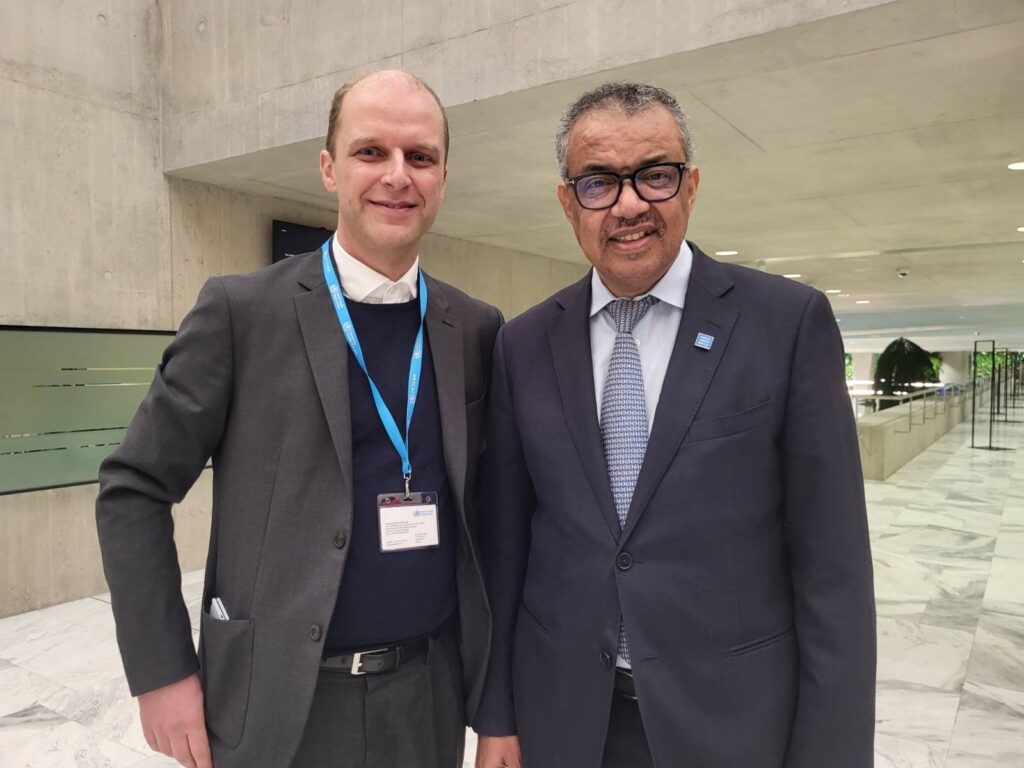
During a challenging financial environment, the European Lung Foundation (ELF) recognises the critical role played by the World Health Organization (WHO) in advancing global health, particularly in the face of non-communicable diseases (NCDs), air pollution, the preparedness for pandemics and other global health emergencies. WHO continues to serve as the leading international body, facilitating crucial interactions, providing critical guidance, evidence-based resources and opportunities for collaboration that benefit individuals and organisations worldwide.
In a globalised and interconnected world, the importance of a unified approach to health has never been clearer. WHO’s leadership in areas such as tobacco control, air quality and lung disease prevention has resulted in life-saving policies, cutting-edge research and public health initiatives that have positively impacted millions of people globally.
ELF has experienced first-hand, through work on air quality and NCD prevention, the power of the WHO’s collaborative efforts.
ELF also recognises the crucial role of civil society in shaping health policies. Kjeld Hansen, former ELF Chair and member of the WHO Civil Society Commission, shares his perspective as a person with lived experience of a lung condition and inputs into this crucial area of work. He recently participated in the World Health Assembly (WHA) in May 2025.
At the WHA, Kjeld engaged in high-level meetings with WHO leadership and civil society representatives to discuss the important contributions of civil society in advancing global health. A particular focus was on progressing advocacy around lung health and following the process leading to the adoption of the historic Lung Health Resolution.
“The Lung Health Resolution may not be all that everyone wished for, but it represents a global consensus on the importance of lung health. It is an important starting point for future progress. The next step is ensuring this resolution becomes a national priority and that it’s properly financed.”
Kjeld also took part in the Inter-Parliamentary Union meeting, highlighting the increasing importance WHO places on civil society engagement. Kjeld said:
“It was great to feel the pride and solidarity around the global health agenda at the World health Assembly. I appreciate the increasing recognition and importance that member states attribute to civil society alongside health professionals, national delegates and WHO. When patient groups, communities and NGOs collaborate with WHO, they bring lived experience, accountability and trust to the table. This partnership transforms global health into a shared journey, one where equity and solidarity guide every decision.”
ELF collaborated with the WHO Europe on the recent report on chronic respiratory diseases, sharing examples of patient advocacy initiatives and facilitating patients to share their experience of living with a long-term lung condition.
WHO’s continued guidance and expertise are essential in shaping health policies that are inclusive, equitable and responsive to the needs of vulnerable populations, especially those living with long-term lung conditions.
Dimitris Kontopidis, ELF Chair, said:
“We are proud to work together with the WHO in promoting a world where clean air is a fundamental human right and where equitable access to healthcare is a global priority. We stand in strong support of the WHO’s mission and its ongoing efforts to foster scientific collaboration, promote global health and ensure that health systems are prepared for future challenges.”
Kjeld Hansen, former ELF Chair and member of the WHO Civil Society Commission, said:
“I am proud to work as part of the WHO Civil Society Commission and I have seen first-hand the value that WHO brings to global health. When patient groups, communities, and NGOs collaborate with the WHO, they bring lived experience and accountability to the table. This partnership transforms global health into a shared journey—one where equity and solidarity guide every decision.”
Find out more about recent activities with the WHO: